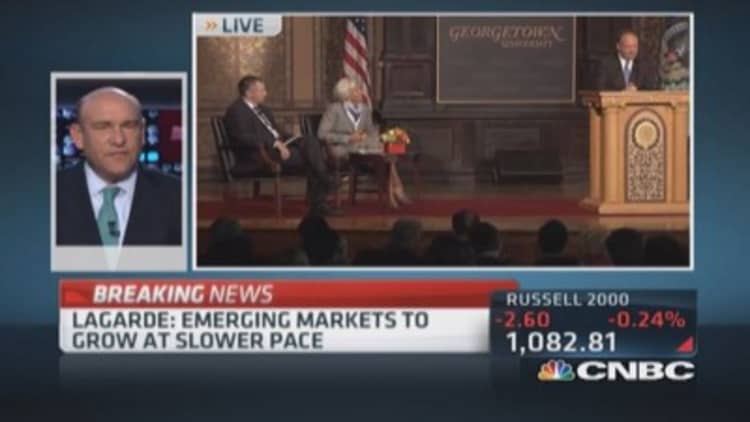Economic growth in the East Asia Pacific (EAP) region will outpace growth in developed nations -- in spite of China's economic expansion slowing to 7.2 percent in 2015, according to the World Bank's EAP Economic Update, released Monday.
"East Asia Pacific will continue to have the potential to grow at a higher rate – and faster than other developing regions – if policy makers implement an ambitious domestic reform agenda, which includes removing barriers to domestic investment, improving export competitiveness and rationalizing public spending," Axel van Trotsenburg, World Bank East Asia and Pacific Regional Vice President said.
The World Bank trimmed its 2014 global growth forecast to 2.6 percent – its second reduction – from an initial forecast of 3.2 percent in January. Emerging markets in Asia saw capital outflows during the taper tantrum in May-September last year but are better-placed to weather any economic shocks amid renewed foreign investment.
Read MoreIs big business too influential?
Structural reforms
Developing EAP remains the fastest growing region in the world, the World Bank said; it forecasts growth of 6.9 percent this year and next, down slightly from 7.2 percent in 2013. Key risks for the EAP region include slower-than-anticipated demand for regional exports, volatility in the financial markets exacerbated by geopolitical tensions and a sharp slowdown in China.
EAP countries must implement structural reforms to enhance export competitiveness to offset headwinds from the uneven recovery in high-income economies, the report said.
Read MoreChinese are most upbeat about their economy
"The best way for countries in the region to deal with these risks is to address vulnerabilities caused by past financial and fiscal policies," said Sudhir Shetty, Chief Economist of the World Bank's East Asia and Pacific Region.
The World Bank expects growth in China to slow to 7.2 percent in 2015 from 7.4 percent this year, citing government efforts to position the economy on a "more sustainable path with policies addressing financial vulnerabilities and structural constraints."

Read MoreLagarde: Global economy weaker than envisioned 6 months ago,IMF to cut growth outlook
IMF could follow
The International Monetary Fund (IMF) is expected follow suit during the IMF-World Bank Annual Meeting this week after IMF Director General Christine Lagarde said last week that the world economy is at an inflection point.
"Yes, there is a recovery but, as you all know—and we can all feel it—the level of growth and jobs is simply not good enough. The world needs to aim higher and try harder. This means bolder policies to inject a 'new momentum' that can overcome this 'new mediocre' that clouds the future," she said at Georgetown University last Thursday.

